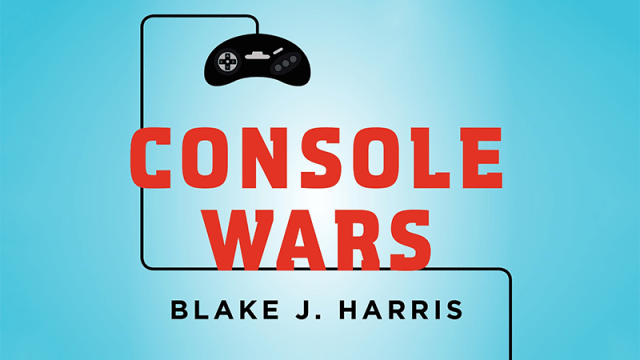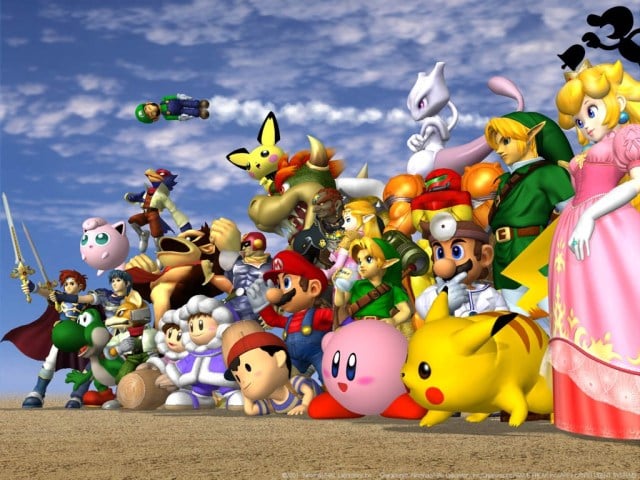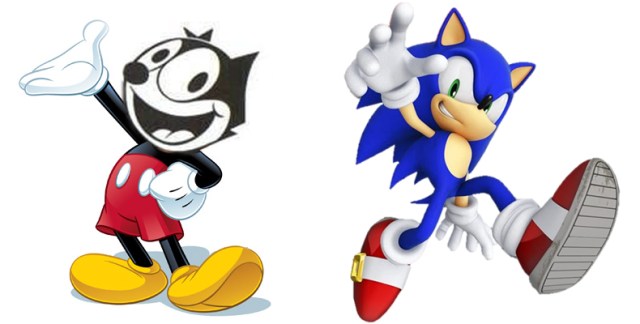Interview: Console Wars Writer Blake J. Harris on the “Wild West” Era of Sega vs. Nintendo

If were around during the ’90s, odds are that you’ve got a strong, lingering opinion on the question, “SNES or Sega Genesis?” Now, as the gaming industry is bigger than ever, Blake J. Harris has told the behind-the-scenes story the infamous console war that started it all based on over 200 interviews with the companies’ employees. And now that his book is on shelves, there’s even a documentary and feature film in the works!
But we’ll get to that in a minute. First, as a history lesson for younger folks, Nintendo’s NES rescued the entire video game industry from collapse in the ’80s, and the company was the (practically) unchallenged god of gaming for years. Though other competitors existed concurrently when they moved on to the SNES and Sega brought out its Genesis, it was Sega’s marketing efforts to make Nintendo look like a child’s toy and position themselves as the cool, edgy, grown up alternative that gave them a fighting chance and, for a time, allowed them to beat Nintendo at its own game.
At the center of Console Wars is Tom Kalinske—known his work with brands like Mattel’s Barbie, Hot Wheels, and the team that came up with the ever popular Flintstones vitamins—who was recruited by Sega to lead Sega of America and oust Nintendo from its throne. Though successful, Kalinske eventually butted heads with Sega of Japan, and the company wound up where it is today. But in the middle of all that was a fascinating story, and we asked Harris a few questions about his work telling that tale.
Dan Van Winkle (TMS): How did the idea to research and write Console Wars come about?
Blake J. Harris: My adventure down the 16-bit rabbit hole was as unexpected as it proved to be delightful.
A little over four years ago, my brother bought me a Sega Genesis for my birthday. This was the console we had and played together most as kids, and one I hadn’t touched in over 15 years. Holding that controller in my hands after so years away from video games brought to the surface all kinds of memories and then, after the barrage of that nostalgia hit me, came all kinds of questions. What ever happened to Sega? How were they even able to compete against Nintendo in the first place? And ultimately: what the hell was going on behind the scenes all that time?
To answer these questions and all the others that kept bubbling up, I wanted to read a book on the subject. But, as luck would have it, no such book existed. Not only did no such book exist, but I quickly learned that for an industry as gigantic as video games there was an alarmingly small number of books about this wonderfully wild world.
So I started getting in touch with former of employees from Sega and Nintendo to find out if there was an interesting story here—something exciting and dramatic, with twists and turns that would appeal to gamers and non-gamers alike. Needless to say, what I found exceeded my wildest expectations…
TMS: What makes the specific time period and battle in gaming that the book focuses on so interesting compared to other eras?
Harris: Three things, mostly:
1. This was the “wild west” era of the industry. Sabotage, theft, backroom dealings; these were par for the course and how business was done back then.
2. This battle between Sega and Nintendo didn’t just shape the lives of those of us growing up in the 80s and 90s, but it also transformed video games from “childish playthings” to “mainstream entertainment.”
3. The games during this era were outstanding.
TMS: Did you have a personal stake in it for nostalgia’s sake (or a long-standing SNES vs. Genesis preference & some favorite games, maybe)?
Harris: My brother and I got an 8-bit NES in the late ’80s and loved it. So, naturally, we wanted an SNES! But our dad refused, saying that “Nintendo would eventually just come up with a Super Duper Nintendo and then a Super Super Duper Nintendo and so on.” So, instead of an SNES, we got a Genesis. Which we loved, loved loved. I guess, in hindsight, my dad wasn’t really wrong, but what he was really objecting to—and what so many parents hated about Nintendo at this time—was that the new system didn’t include backward compatibility. So, part of my desire to write this book was to learn about how business decisions liked that changed my childhood.
TMS: Why do you think Nintendo seems to keep losing to roughly the same marketing strategy, even today?
Harris: Ha. It seems that way, doesn’t it?
I suppose the most accurate (and fair) way to answer this is by saying that, at some point, Nintendo decided that they weren’t going to aggressively compete for market share and instead excel at making a certain type of video games: fun, family-friendly, titles with high replay value.
This was something they struggled with a great deal throughout much of the story told in Console Wars as they watched Sega steal the video game market with older-skewed games for a more mainstream audience.
In a sense, they consider themselves the “Disney of video games.” And content-wise, they truly due have a lot in common with the tone of Disney’s films and characters. But the obvious difference that one could point out is that Disney is a large conglomerate and also owns/produces/distributes a ton of un-Disney-like things (i.e. ESPN, Marvel, etc.). That said, and as stubborn as Nintendo might appear to be, I sincerely believe that they are still the best (or at least one of the best) software-makers out there.
TMS: On the other hand, what’s different about Nintendo that allows them to stand the test of time, even if they’ve rarely been in first place since?
Harris: The answer to this is kind of an extension of the previous question: Nintendo knows who they are and operates as such. As fans, sometimes we wish they’d be more flexible, or adapt more quickly, but they are a conservative company that takes a long-view of the industry. To put it more simply: I’d say they view themselves as the tortoise in an industry with changing hares. In 1994, this strategy looked brilliant. Same for 2006 (with the release of the Wii). Nowadays, though, it’s easy to call them foolish or stubborn. I think the truth is closer to the former than the latter, but that’s just one man’s opinion.
Oh, and they also have the best IP of any video game company. Nobody can even come close.
TMS: What was Sega’s fatal flaw? Is selling consoles at a loss—something Nintendo still refuses to do that benefitted the Genesis and many other consoles since—ultimately a flawed business plan in the long run, or can it work?
Harris: It’s not a flawed business plan; the video game industry really is a razor/razorblades type of business. And you need people to have those consoles to make your money off the software.
To me, Sega’s undoing was the invisible war between Sega of America (SOA) and Sega of Japan (SOJ). If not for that, I think Sega’s fate would have been very, very different.
TMS: What’s the biggest difference(s) between competition and business in the gaming industry now and during the time of Console Wars?
Harris: The cost of making games. The budgets on many games today rival that of blockbuster movies. With so much at stake (literally and figuratively), you just can’t afford to take the same kind of risks any more. The Wild West is no more.
TMS: What do you think today’s gaming industry could stand to learn from Console Wars?
Harris: The power of incredible marketing and to trust the people who know what the hell they’re doing.
TMS: Did you find what you expected happening behind the scenes in the battle between Sega and Nintendo, or was there more to it than you initially suspected?
Harris: Growing up as a soldier on the front lines of this battle, I admittedly had high expectations about what I would find when I went back stage. Even so, I could not have been more blown away—pleasantly, of course—by what went on behind-the-scenes. The larger-than-life personalities! The compelling human drama!! The “what if’s” of so many things that could have and probably should have been!!!
TMS: Why do you think video game history is still so unknown and under-reported, even all these years later?
Harris: Excellent question. I ask myself this just about every day; especially knowing how lucky I am that I got to be the one who told this story. The best answer I can come up with is that many of the previous attempts to delve into this world tended to be hyper-specific; feeling as if they were written by gamers, for gamers. And maybe this made the industry seem insular and therefore less important, or interesting? I honestly have no idea, but now that I’ve steeped myself in video game history, I very sincerely believe that the games played behind-the-scenes are more interesting than those on the screen.
TMS: Are there any other time periods in gaming that you think have unknown stories, or did the industry become too mainstream after Console Wars to have secrets on the same scale? What other event in gaming would you really like to look into?
Harris: Absolutely. I mean, even within Console Wars there are topics that I think are worthy of their own books. Whether it’s a behind-the-scenes look at the development of iconic games, or biographies of players within the book who don’t spend much time in the lime light, there are several topics there alone. And outside of that, there are tons of other great topics. How could there not be? For 4+ decades, video games have been this wonderful intersection of entertainment, technology, pop-culture and social interaction.
I’ll tell you one thing though: my book proposal went out to 25 publishers (to see if they would like to buy and publish the book). Even though I believed this to be an epic generational story (and even though Seth Rogen, Evan Goldberg and Scott Rudin were already attached to produce both a documentary and a feature film), 22 of the publishers passed. The reason? “Video game books don’t sell.” At the least, I hope that Console Wars has helped changed that false perception and made it a little easier for the next guy who wants to write about gaming.
TMS: Without giving too much away, of course, what was one of the most unexpected revelations in your research?
Harris: That Sonic The Hedgehog was actually just the body of Mickey Mouse with the head of Felix the Cat.
[Editor’s note:
TMS: What about any people working behind-the-scenes who had a big impact but whose names the public doesn’t really know, and what did they do?
Harris: Too hard to answer this. In my book, I tried to shine a light on dozens of previously unheralded pioneers (i.e. Diane Fornasier, Ellen Beth Van Buskirk, Tony Harman, Gail Tilden, etc.) and not only were their contributions so much greater than that which was in the book, but there were dozens of others who did important things and aren’t even mentioned. I always kind of viewed this story as the video game version of The West Wing; selecting a handful of interesting people to tell a larger story, while simultaneously showing that success is a team effort. And, as with The West Wing, there could have been just as easily been other shows set around other important characters who we never saw. I mean, they probably wouldn’t have been as entertaining without President Bartlett at the center, but still…
TMS: Finally, what do you think the battle will be over moving forward in the games industry?
Harris: VR VR VR.
—
—Please make note of The Mary Sue’s general comment policy.—
Do you follow The Mary Sue on Twitter, Facebook, Tumblr, Pinterest, & Google +?
Have a tip we should know? [email protected]


